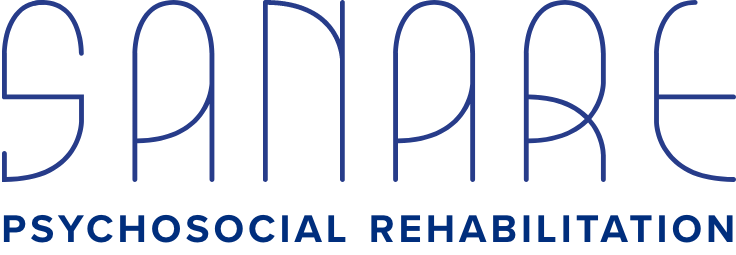Bipolar 1: A Guide To Understanding The Signs and Symptoms
Bipolar disorder is a complex mental health condition with symptoms that can vary in severity. Understanding the signs and symptoms of bipolar 1 can be the key to getting an accurate diagnosis and seeking appropriate treatment. In this comprehensive guide, we'll explore what bipolar 1 is and how to identify its potential signals. Read on for an eye-opening breakdown of all you need to know about this mental illness!
What is Bipolar 1 Disorder?
Bipolar 1 disorder is a mental illness that is characterized by extreme mood swings. These mood swings can be very drastic and can last for long periods of time. People with bipolar 1 disorder often have difficulty functioning in their day-to-day lives.
The symptoms of bipolar 1 disorder can vary from person to person. Some people may only experience mild symptoms, while others may have severe symptoms that require hospitalization. Symptoms of bipolar 1 disorder can include:
Depression: This is the most common symptom of bipolar 1 disorder. People with this illness will often feel hopeless, worthless, and helpless. They may lose interest in activities they once enjoyed and have trouble sleeping.
Mania: This is the other side of the coin when it comes to bipolar 1 disorder. People who are experiencing a manic episode will often feel elated, full of energy, and invincible. They may become more impulsive and engage in risky behaviors.
If you think you or someone you know might be suffering from bipolar 1 disorder, it’s important to seek professional help. Early diagnosis and treatment can make a big difference in managing the symptoms of this illness.
Signs and Symptoms of Bipolar 1
Bipolar disorder is a mental illness that affects your mood, causing you to experience extreme highs and lows. If you have bipolar disorder, you may have periods of feeling extremely happy, energized, and productive (known as manic episodes) followed by periods of feeling sad, depressed, and hopeless (known as depressive episodes). Bipolar disorder can be a very debilitating illness, making it difficult to function in day-to-day life.
The signs and symptoms of bipolar disorder can vary depending on which type of bipolar disorder you have. Bipolar 1 Disorder is the most severe form of the illness, characterized by manic episodes that last for at least 7 days or are so severe that hospitalization is necessary. Manic episodes may include symptoms such as:
Heightened energy levels and activity
Decreased need for sleep
Irritability or racing thoughts
Grandiose thinking or delusions of grandeur
Engaging in risky behaviors (such as spending sprees, sexual promiscuity, or reckless driving)
Manic Episodes
A manic episode is defined as a distinct period of abnormally and persistently elevated, expansive, or irritable mood. During a manic episode, an individual may:
Feel elated, “high,” or hyperactive
Have a decreased need for sleep
Be Talkative
Be easily distracted
Exhibit poor judgment
Engage in risky behaviors
Use excessive alcohol or substances
Grandiose thinking
May experience delusions or hallucinations
Depression Episodes
Depression is characterized by a number of symptoms that can last for weeks or even months. These may include:
Feeling hopeless, useless, and helpless
Loss of interest in usual activities or interests
Insomnia or hypersomnia
Appetite changes
Fatigue
Feelings of guilt or worthlessness
Difficulty concentrating
Thoughts of death or suicide
Mixed Episodes
Mixed episodes are a common symptom of bipolar disorder, characterised by a simultaneous experience of both manic and depressive symptoms. While the exact symptoms experienced during a mixed episode can vary from person to person, some common signs include feeling excessively happy and energetic one moment, and then suddenly experiencing feelings of sadness, hopelessness or worthlessness the next. Other common symptoms include insomnia, poor concentration, racing thoughts and agitation. Mixed episodes can be extremely distressing for those affected and can sometimes lead to self-harm or suicidal thoughts. If you are experiencing a mixed episode, it is important to seek professional help immediately.
Diagnosing Bipolar 1
Bipolar disorder is a mental illness that causes extreme mood swings. The highs, or mania, can last for weeks or even months. The lows, or depression, can last for weeks or months as well. Bipolar disorder is often misdiagnosed as depression because the low periods are more common and tend to last longer.
There is no single test to diagnose bipolar disorder. Rather, it is a process of ruling out other conditions and taking into account your family history, personal history, and symptoms. Your doctor will likely start with a physical exam and lab tests to rule out other potential causes of your symptoms. They will also ask you questions about your moods, thoughts, behaviors, and any substance abuse.
If your doctor suspects bipolar disorder, they may refer you to a mental health professional for an evaluation. This evaluation may include a thorough interview and possibly some written tests. This diagnosis is best made in a relationship with your mental health professional over a period of time. There is no one-size-fits-all approach to treatment, but there are effective options available. With proper treatment, people with bipolar disorder can lead healthy and productive lives.
Treatments for Bipolar 1 Disorder
Bipolar 1 Disorder is treated with a combination of medication and psychotherapy. Medications used to treat Bipolar 1 Disorder include mood stabilizers, antipsychotics, and antidepressants.
Psychotherapy, psychosocial rehabilitation, and other forms of mental health care can help people with Bipolar 1 Disorder learn how to manage their symptoms and cope with the stressors in their lives.
